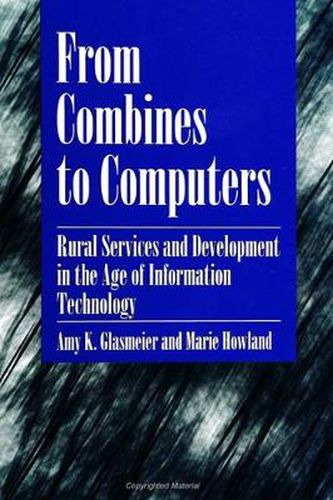Readings Newsletter
Become a Readings Member to make your shopping experience even easier.
Sign in or sign up for free!
You’re not far away from qualifying for FREE standard shipping within Australia
You’ve qualified for FREE standard shipping within Australia
The cart is loading…






Through an analysis of national data and detailed case studies, From Combines to Computers examines how the transition to a service economy is playing out for rural America. It answers two important questions: Will services fill the gap left by lost farming, manufacturing, and mining jobs? And will services stabilize, even revitalize, rural areas? Glasmeier and Howland document the intraregional spatial patterns and trends of services in the national economy, compare services in urban and rural communities, and identify the potential and limitations of rural development strategies based on services. In particular, they document the growing dominance of branch plants, the displacement of mom-and-pop enterprises, and the declining access to services for residents in the least populated rural areas. The authors conclude that services are unlikely to be the basis of widespread sustainable development unless policies are designed to help firms and communities compete successfully in an increasingly global and information-based economy
$9.00 standard shipping within Australia
FREE standard shipping within Australia for orders over $100.00
Express & International shipping calculated at checkout
Through an analysis of national data and detailed case studies, From Combines to Computers examines how the transition to a service economy is playing out for rural America. It answers two important questions: Will services fill the gap left by lost farming, manufacturing, and mining jobs? And will services stabilize, even revitalize, rural areas? Glasmeier and Howland document the intraregional spatial patterns and trends of services in the national economy, compare services in urban and rural communities, and identify the potential and limitations of rural development strategies based on services. In particular, they document the growing dominance of branch plants, the displacement of mom-and-pop enterprises, and the declining access to services for residents in the least populated rural areas. The authors conclude that services are unlikely to be the basis of widespread sustainable development unless policies are designed to help firms and communities compete successfully in an increasingly global and information-based economy